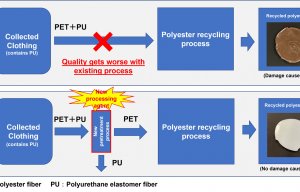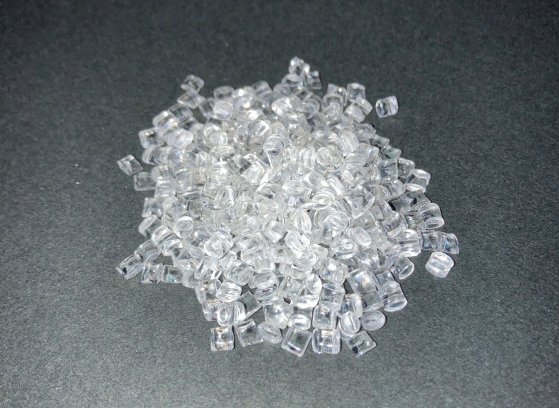
Eliminating elastanes in polyester blends
Overcoming the difficulties encountered with dyes and reducing environmental load.

25th May 2022
Innovation in Textiles
|
Tokyo, Japan
Teijin Frontier, the Tokyo-based Teijin Group’s fibres and products converting company, has developed a recycling technology using a new depolymerization catalyst to recycle coloured polyester fibres without losing quality. The new technology also lowers environmental load compared to conventional recycling.
The technology is said to result in recycled materials that are equivalent to virgin polyester and employs a new depolymerization catalyst for the conventional bis (2-hydroxyethyl) terephthalate (BHET) method with which spent polyester is chemically decomposed and purified back into BHET intermediate raw material before being repolymerized into polyester.
The production process is simpler than using dimethyl terephthalate (DMT) and ethylene glycol in a transesterification reaction, so recycling is achieved with less energy consumption. The new technology also reuses resources such as wastewater, waste liquid and depolymerization catalysts.
Teijin Frontier will launch a pilot facility at its Matsuyama plant in Japan this month and proceed with verification tests. The company is working to establish a mechanism for the sustainable fibre-to-fibre recycling of polyester in cooperation with partner companies and consortiums both in Japan and globally.
Compared to material recycling, which melts and moulds used products including polyethylene terephthalate (PET) bottles, DMT-based chemical recycling results in less deterioration of quality due to recycling, but its energy consumption is high.
The BHET method is often used when recycling colourless and transparent PET bottles to new PET bottles but there have been difficulties in producing high-quality recycled polyester raw material because foreign substances, such as dyes used for coloured polyester fibres, could not be completely removed, resulting in discoloured recycled raw material. The new process is said to overcome this.

Business intelligence for the fibre, textiles and apparel industries: technologies, innovations, markets, investments, trade policy, sourcing, strategy...
Find out more